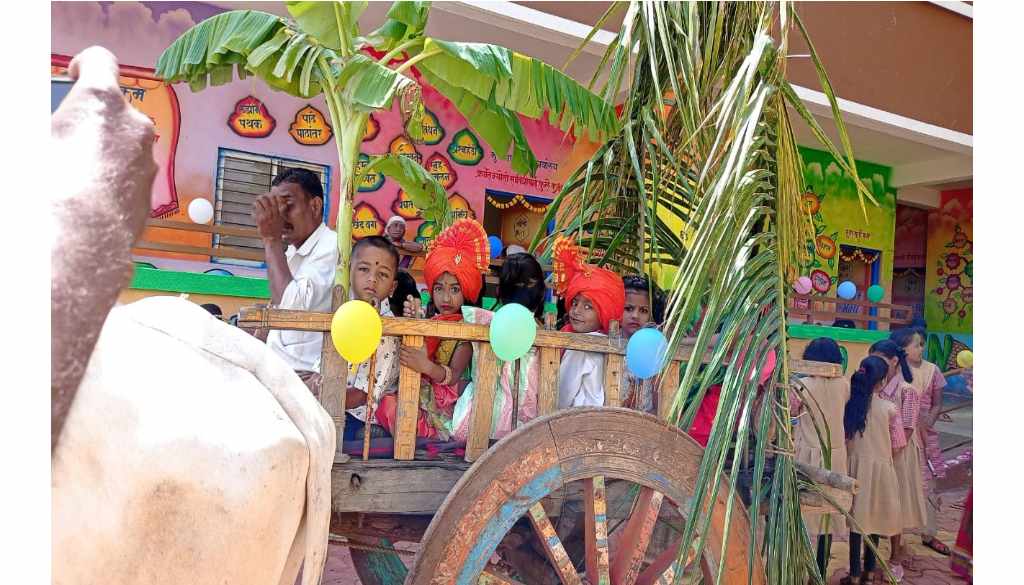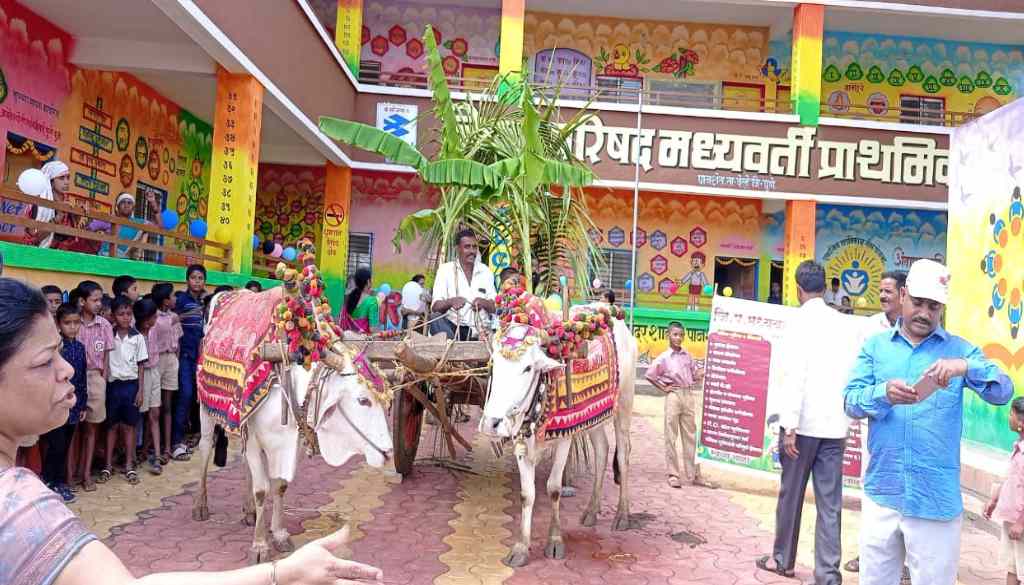Pune: Maharashtra’s First Cluster School Opens In Panshet For About 200 Students From Remote And Hilly Areas In Velhe Taluka

Panshet, 15 June 2023: Varasgaon, a small hamlet nestled in the Sahyadri Mountains, has witnessed a significant development in its education system. Pune’s Zilla Parishad, in adherence to the Right to Education Act of 2009, operates a primary school in the hamlet. However, with just eight students enrolled from grades 1 to 5 and two teachers, the school faced challenges in providing a comprehensive education. Recognizing the need for quality education, Pune’s Zilla Parishad has established a Cluster School in Panshet, where 210 students from 13 public schools within a 10-kilometre radius are expected to study.
Today was the first day of the Cluster School. Students, attired in colorful uniforms, arrived at the school. It was a cheerful atmosphere, and parents from nearby villages, especially parents from PVTG (Particularly Vulnerable Tribal Groups), were also present. They were delighted to see their children enrolled in such a large and well-equipped school.
Popat Nalawade, Block Education Officer, Amol Nalawade, Ex-ZP member, Pankaj Patil, Mahatma Gandhi National fellow and Cluster School Coordinator, Anil Bhandari, Janki Devi Bajaj Gram Sanstha, Sameer More, beat-in-charge, teachers, parents were present on the occasion.
“For now, 132 students are enrolled to date, and hoping others will get enrolled in the next few days”, said Patil.
The establishment of cluster schools aligns with Clause 7 of the National Education Policy 2020, which advocates for the consolidation of small schools into larger ones to ensure quality education. Pune Zilla Parishad operates 3,638 primary schools, of which 403 schools have an enrollment of 150 or more students. These schools collectively educate 50% of the district’s 2.30 lakh students. To ensure adequate infrastructure for these 403 schools, a scheme was introduced, estimated to cost Rs 96 crores.
However, the estimated cost per child in smaller schools is approximately Rs 6.4 lakhs, compared to Rs 90,000/- in larger schools. The discrepancy arises due to fixed costs such as eLearning resources, which remain the same regardless of the number of students. To address this issue, it is imperative to invest in cluster schools that can provide the necessary infrastructure and educational resources as per the National Education Policy.

To assess the educational outcomes, Pune Zilla Parishad conducted the Fundamental Literacy and Numeracy (FLN) test, evaluating language proficiency and mathematics skills for classes 1 to 5. The data collected indicated that students from smaller schools generally exhibited lower levels of language and mathematics skills compared to their counterparts in larger schools. This disparity was particularly evident at level 1, where students from small schools struggled with literacy and numeracy.
Moreover, a smaller number of students from these schools reached level 3 in language skills, indicating a lower level of mastery compared to students from larger schools. These findings highlight the disadvantages faced by students in smaller schools, hindering their learning outcomes and overall development.
The establishment of cluster schools addresses these challenges by providing peer learning opportunities, specialized teachers for subjects like computer programming, arts, and sports, and better school governance facilitated by full-time principals. Despite the advantages, previous attempts to establish cluster schools have been met with protests. False rumours of Maharashtra’s government planning to close schools with fewer than 20 enrolled students sparked protests from political parties and activists. Pune Zilla Parishad’s decision to implement the National Education Policy 2020 by establishing a cluster school in Panshet showcases its commitment to providing quality education and has required persistent efforts to gain stakeholder support.
To ensure the success of the cluster school initiative, Pune Zilla Parishad collaborated with local leaders, school management committees, and the Janki Devi Bajaj Foundation, known for improving infrastructure in public schools. These partnerships, coupled with the provision of transportation services through yellow school buses provided by Force Motors, have contributed to the project’s credibility and support. Teacher training programs conducted by the District Institutes of Education and Training will equip teachers to teach specialized subjects and cater to diverse student needs.
While the project faces challenges such as external activism and bureaucratic transfers, Pune Zilla Parishad’s efforts hold the potential to deliver quality education to students like Sayee in remote areas. The outcomes of this project will serve as a benchmark for the successful implementation of the National Education Policy 2020.
Join Punekar News Whatsapp Group, Telegram, Instagram And Twitter For Regular Update about Pune City And Pimpri-Chinchwad







